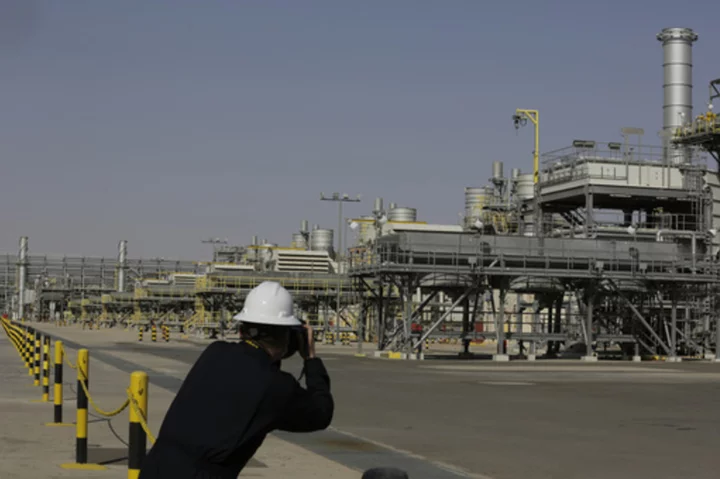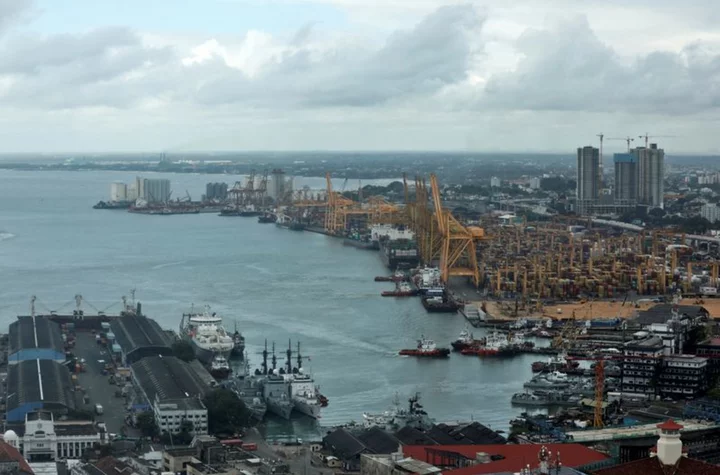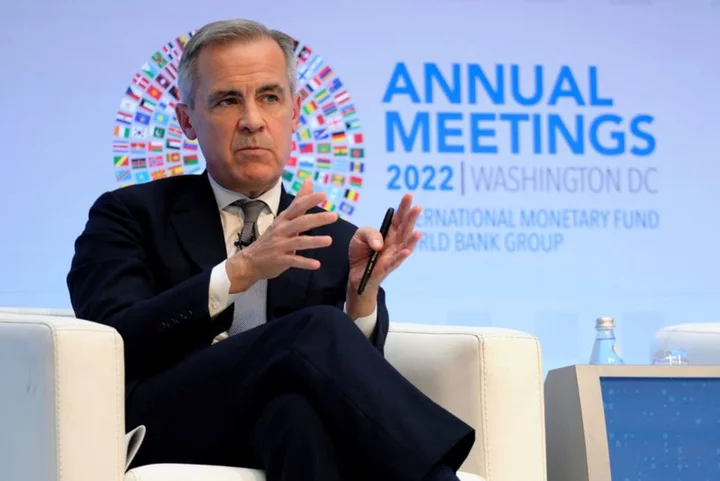LONDON (AP) — Saudi Arabia and Russia are extending cuts to the amount of oil they pump to the world in a bid to prop up prices, showing how two of the world's largest oil producers are scrambling to boost income from the fossil fuel even as demand has weakened with the economy.
The decision gave a slight boost to oil prices Monday and comes after the Saudis announced a large cut in output for July at the latest meeting of the OPEC+ coalition of oil producers — raising concerns that gasoline prices for U.S. drivers could start ticking up.
The Saudi Energy Ministry said it would extend July's cut of 1 million barrels per day through August to support “the stability and balance of oil markets.” That will keep the Gulf nation's output at 9 million barrels per day.
Meanwhile, Russian Deputy Prime Minister Alexander Novak said his country will cut production by an additional 500,000 barrels a day in August, according to Russian news reports.
The voluntary reductions come on top of earlier cuts that the OPEC oil cartel, led by Saudi Arabia, and allied producers, led by Russia, agreed to extend through next year.
But they have given little lasting boost to oil prices, helping U.S. drivers filling their tanks more affordably during the busy summer travel season and providing consumers worldwide some relief from inflation.
The average price for a gallon of gasoline in the U.S. is less than $3.50 this year, down $1.30 per gallon from last year after falling another nickel in the past week.
Benchmark U.S. crude picked up 77 cents Monday to $71.41 a barrel, while international benchmark Brent crude gained 70 cents to $76.11. Both later erased some of those gains.
U.S. crude has been depressed for some time and rose above $70 per barrel for the first time in five weeks Friday.
That the Saudis felt another cut was necessary underlines the uncertain outlook for fuel demand in the months ahead even as travel picks up. The U.S., for example, saw an all-time high in airline passengers on Friday during the Fourth of July weekend.
But there are concerns about economic weakness in the U.S. and Europe, while China’s rebound from COVID-19 restrictions has not been as strong as many had hoped.
The Saudis need sustained high oil revenue to fund ambitious development projects aimed at diversifying the country’s economy, while Russia is looking to pad its profits to pay for its war against Ukraine.
Western sanctions mean Moscow is forced to sell its oil at a discount to countries like China and India. Its estimated export revenue fell by $1.4 billion to $13.3 billion in May, down 36% from a year ago, the International Energy Agency said in a report last month.
Combined with an earlier obligation, Russia's output in August will be reduced by 1 million barrels a day. But Rystad Energy said in June that Moscow only dropped production by 400,000 barrels in May, instead of the promised half-million.









